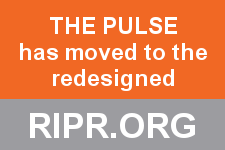More public health research into gun violence?
We’re all still reeling from the Newtown, CT tragedy. Reeling…and trying to make sense of what happened and why. And that’s where health care professionals and scientists are often able to help. We’ve got some of the best right here in Rhode Island, who would probably love to be able to answer questions like: Could we get better at predicting who is likely to commit a crime with a gun? Does having access to a gun in the house make you more likely to commit a crime with a gun?
But here’s the thing. We don’t really know. And it’s not exactly their fault.
A new editorial today in the Journal of the American Medical Association lays out how researchers’ efforts to understand the why and how of gun violence have been stymied by politics. It also lays out how such research could give us a better understanding of this kind of violence. We’ve done quite a bit of work, the authors say, on what leads people to be violent. But we don’t know as much about “how easy access to firearms mitigates or amplifies both the likelihood and consequences of these acts.” Here’s why:
The nation might be in a better position to act if medical and public health researchers had continued to study these issues as diligently as some of us did between 1985 and 1997. But in 1996, pro-gun members of Congress mounted an all-out effort to eliminate the National Center for Injury Prevention and Control at the Centers for Disease Control and Prevention (CDC). Although they failed to defund the center, the House of Representatives removed $2.6 million from the CDC’s budget—precisely the amount the agency had spent on firearm injury research the previous year. Funding was restored in joint conference committee, but the money was earmarked for traumatic brain injury. The effect was sharply reduced support for firearm injury research.
The authors – a doctor from the RAND corporation in Washington, D.C. and another from Seattle Children’s Hospital – point out a number of other ways health care workers and researchers have been silenced on gun issues. In Florida, doctors may not be able to discuss or make notes about firearm safety at all, if some legislation passes. And then there’s the difficulty of tracking down gun data to produce meaningful statistics. But it’s this kind of public health research that’s led to the reduction of harm from other kinds of threats, as in the case of public seat belt awareness campaigns based on motor vehicle crash research.
Perhaps things are about to change.

Does anyone know of any groups advocating to reform gun laws in Rhode Island? I’d sure like to join one… When I search Google only pro-NRA stuff comes up for Rhode Island.